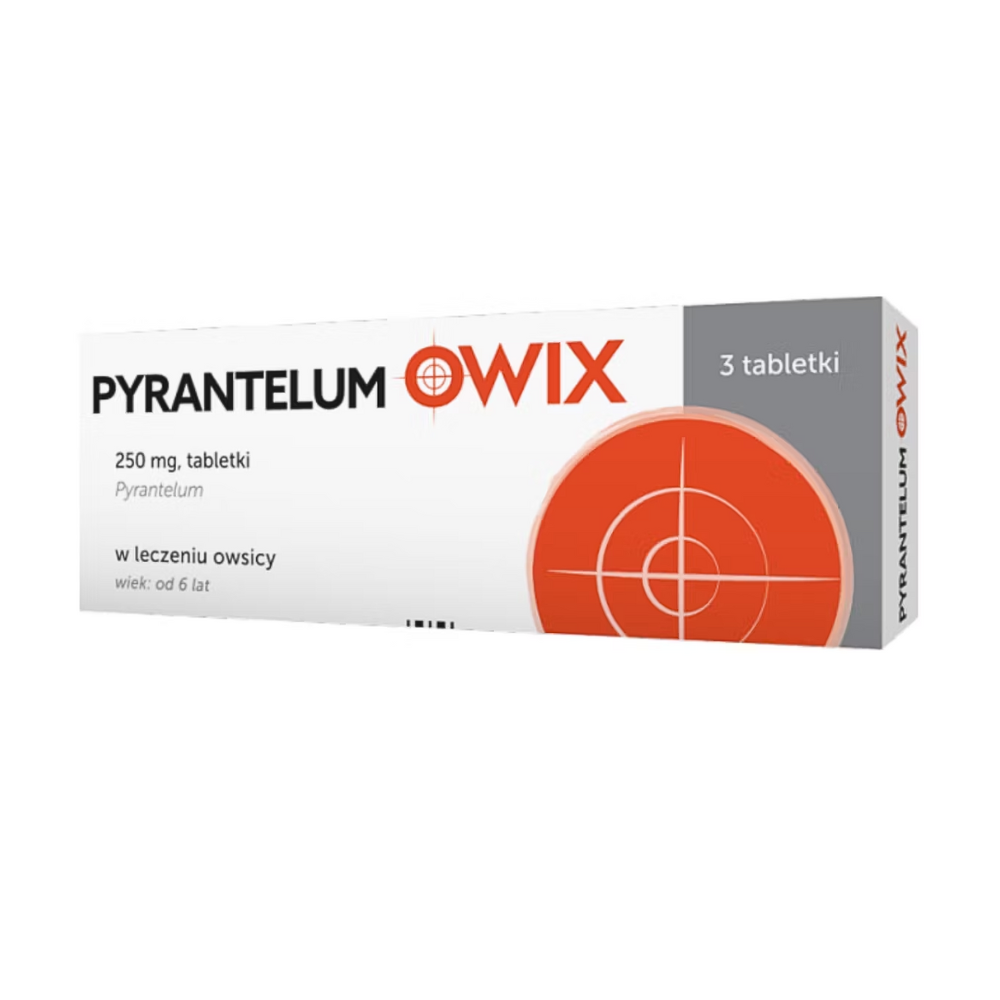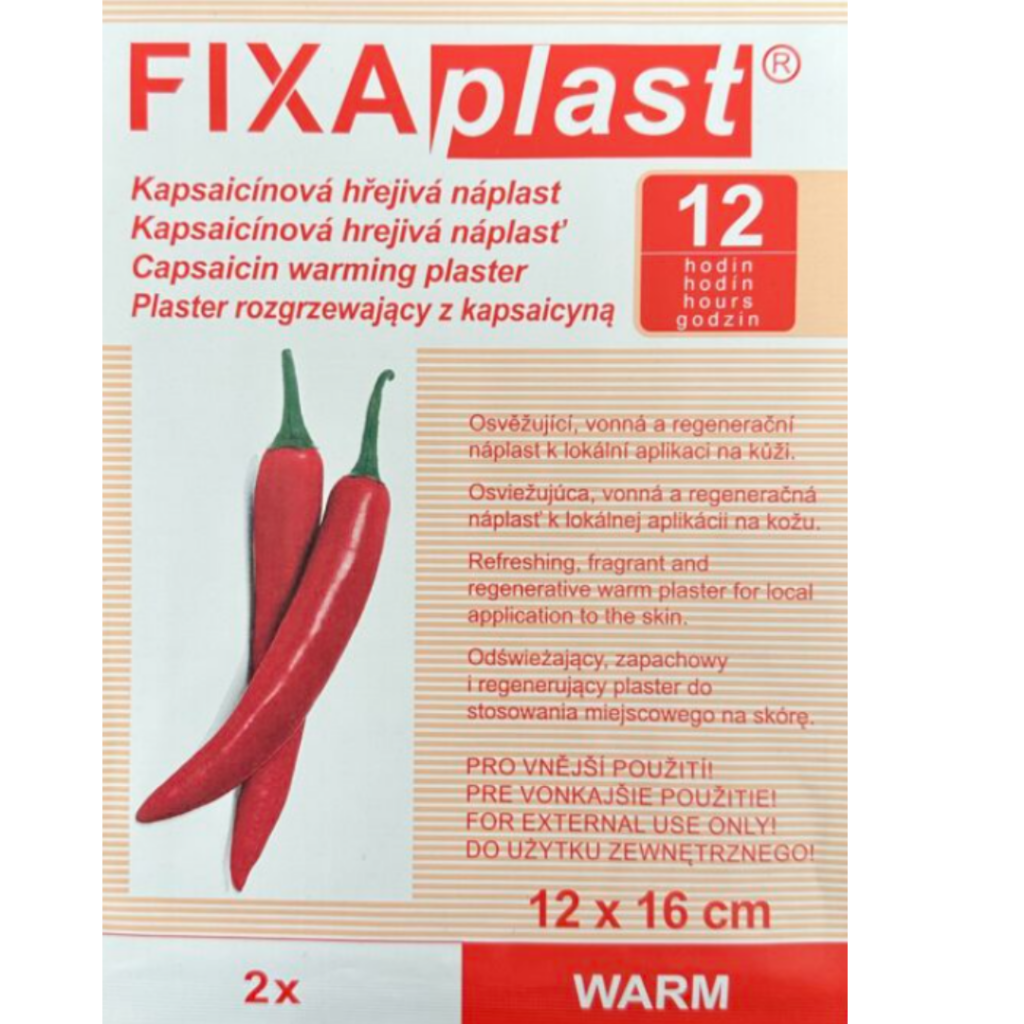Pyrantelum 250mg (3 Tablets)
Pyrantelum is an antiparasitic drug, acting on roundworms within the digestive tract.
Pyrantelum paralyzes the muscles of parasites by activating nicotinic receptors. It also inhibits choline esterase. Blocking the neuromuscular conduction of the parasites leads to their paralysis, which facilitates their removal from the digestive tract without the additional use of laxatives.
The product acts on both mature forms of parasites and parasites in the early stages of development, it does not act on larvae during their migration in tissues.
Pyrantelum works on the following roundworms:
- Enterobius vermicularis,
- Ascaris lumbricoides,
- ancylostoma doudenale,
- Necator americanus,
- Trichostrongylus orientalis
- Trichostrongylus colubriformis.
Intended Use
- Ascariasis caused by Ascaris lumbricoides
- Enterobius vermicularis
- Hookworm invasion of the duodenum Ancylostoma duodenale and Necator americanus.
Active substance: Pyrantelum
Composition
The active substance is pyrantel. Each tablet contains 250 mg of pyrantel as pyrantel pamoate.
The other ingredients are: potato starch, povidone, colloidal anhydrous silica, ethylcellulose, magnesium stearate, orange flavor.
Dosage
Always use this medicine exactly as described in the package leaflet or as your doctor or pharmacist has told you. Check with your doctor or pharmacist if you are not sure.
Posology
The dose should be repeated two or three weeks after the first dose. Do not exceed the recommended dose of the drug.
Parasitology checks should be performed 14 days after the end of treatment.
If symptoms persist after the second dose, contact your doctor.
Due to the pharmaceutical form, Pyrantelum Owix 250 mg tablets are not intended for use in children under 6 years of age.
A drug containing pyrantel oral suspension is available on the market, also intended for use in young children.
The dosage of Pyrantelum Owix tablets according to the patient’s body weight is presented below.
| Body weight (bw) | Single dose | single dose [mg] |
| 17-28 kg | 1 tablet | 250mg |
| 29-39 kg | 1½ tablets | 375 mg |
| 40-50 kg | 2 tablets | 500 mg |
| 51-62 kg | 2½ tablets | 625 mg |
| 63-75 kg | 3 tablets | 750 mg |
| Adults >75 kg | 4 tablets | 1,000 mg |
Patients with hepatic impairment
Patients with hepatic impairment should consult their doctor before taking this medicine. Your doctor may prescribe a lower dose, as the medicine may adversely affect your liver.
Method of administration
The drug is administered orally during or after a meal with water.
The tablet should be chewed or crushed very carefully before swallowing.
Contraindications
Hypersensitivity to pyrantel or to any of the excipients.
Contents
The package contains 3 tablets.
Storage method
5°C-25°C
Manufacturer
Warnings
This is medicine. For safety, use it according to the package leaflet and only when necessary. If in doubt, consult your doctor or pharmacist.
Pyrantel should be used with caution – special medical supervision is required in patients:
- with hepatic insufficiency – as the level of AST may increase during treatment;
- in malnourished or anemic people.
No studies on the effects on the ability to drive and use machines have been performed.
Pregnancy and breastfeeding
There are no controlled studies on the use of the preparation in pregnant women, therefore the drug should be used only if the benefits to the mother outweigh the potential risk to the fetus and it is absolutely necessary.
There are no data on the safety of the preparation in lactating women. It is not recommended to use the preparation in women during breastfeeding. If treatment with pyrantel is unavoidable, breast-feeding should be discontinued.
Animal studies do not indicate harmful effects of pyrantel on the foetus.
Overdosage
Possible symptoms in case of overdose:
- blurred vision
- confusion
- dizziness when getting up from a lying or sitting position
- sweating
- not feeling tired or weak before
- irregular heart rate
- cramps
- trembling
- muscle weakness
- feeling exhausted
- asphyxia (difficulty breathing, loss of consciousness)
There is no specific antidote for pyrantel. In the event of an overdose, symptomatic and supportive treatment should be initiated (early gastric lavage, maintaining a patent airway and breathing, maintaining blood pressure).
Interactions with other drugs
Pyrantel should not be used concomitantly with piperazine. These drugs act antagonistically.
Pyrantel may increase the plasma concentration of theophylline.
Side effects
Like all medicines, this medicine can cause side effects, although not everybody gets them.
With the use of the drug, side effects are infrequent and disappear after discontinuation of treatment.
Rare side effects (less than 1 in 1,000 patients)
- nausea, vomiting, stomach pains and cramps, diarrhea, lack of appetite
- headache, dizziness, drowsiness, insomnia
- rash
- weakness
- transient increase in transaminases (enzymes that determine liver function).
Side effects with frequency not known (frequency cannot be estimated from the available data)
- stool
- hallucinations with disorientation, paraesthesia (numbness, tingling in the extremities)
- fever
- hearing impairment.




